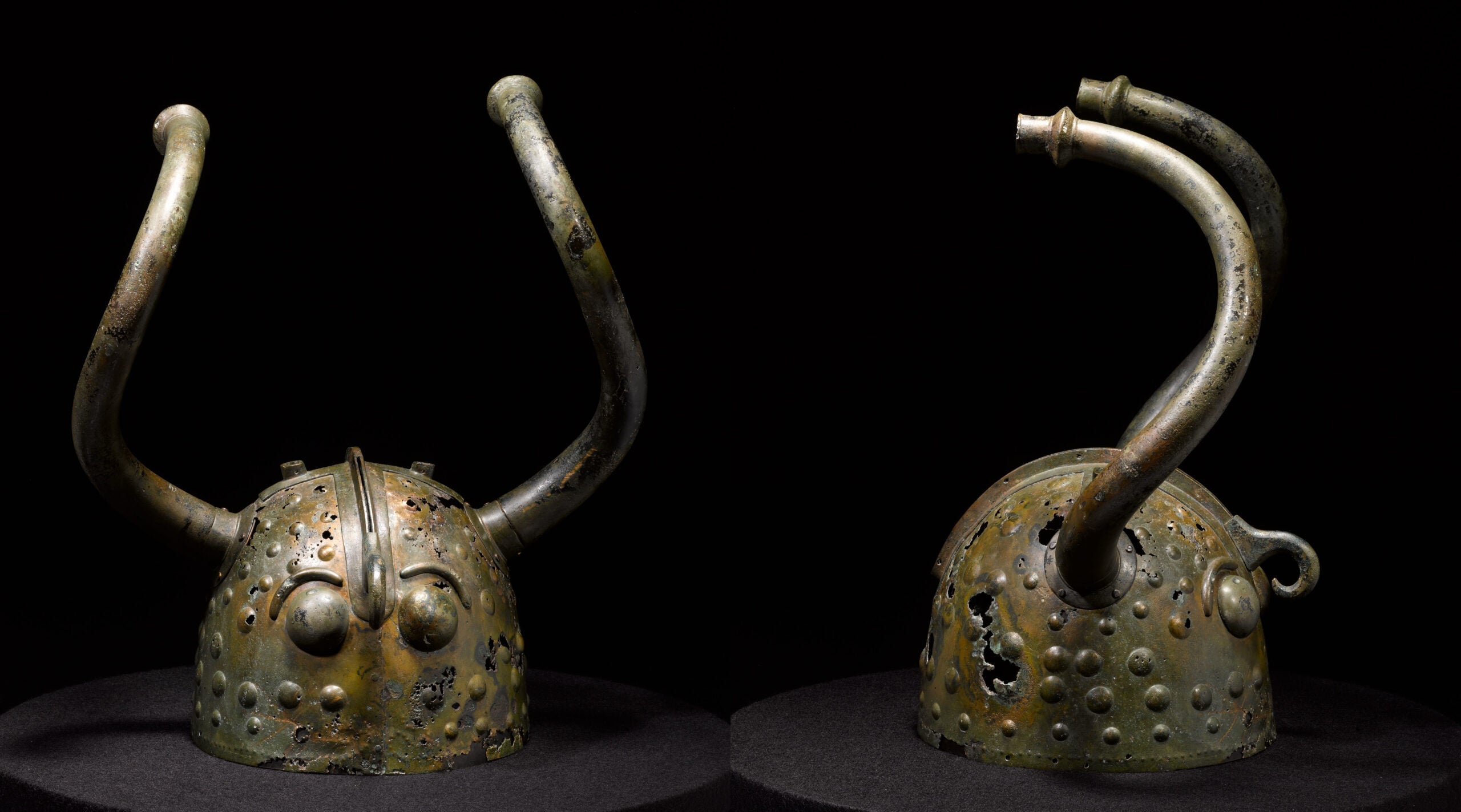The discovery of antibiotics more than 80 years ago has led to considerable improvements in human and animal health. Although antibiotic resistance in bacteria is ancient, resistance in human pathogens is thought to be a modern phenomenon that is driven by the clinical use of antibiotics. A new study shows that particular lineages of Staphylococcus aureus developed resistance to the antibiotic methicillin around 200 years ago.
This SEM image depicts a clump of yellow-colored, spheroid shaped Staphylococcus aureus bacteria that were enmeshed in a blue-colored, filamentous extracellular matrix, which normally binds cells together within the body’s various tissue types. Image credit: National Institute of Allergy and Infectious Diseases.
Methicillin-resistant Staphylococcus aureus (MRSA) is one of the most common antibiotic-resistant bacterial pathogens, causing approximately 171,000 invasive infections each year in Europe alone.
MRSA was first identified in 1960 shortly after the introduction of methicillin as a treatment option against penicillin-resistant Staphylococcus aureus clones, but was possibly selected for by the clinical use of penicillin over the previous 20 years.
Methicillin resistance has subsequently emerged in many Staphylococcus aureus clones around the world, both in hospital and community settings as well as in livestock such as pigs and cattle.
This has serious implications for the treatment of severe infections and the World Health Organization now considers MRSA to be an important threat to human health.
“Hedgehog surveys from Denmark and Sweden previously demonstrated a surprisingly high prevalence of mecC-MRSA — MRSA carrying mecA, a gene that confers methicillin resistance by producing a protein called penicillin-binding protein 2a (PBP2a) — raising the possibility that the evolution of these bacteria was driven by natural selection in wildlife, as opposed to clinical use of antibiotics,” said Dr. Jesper Larsen from the Statens Serum Institut and colleagues.
“Historically, mecC-MRSA was first discovered in dairy cows and subsequently in humans, suggesting that the use of antibiotics in livestock was providing a selective advantage and that human infections were the result of zoonotic transmission.”
In the new research, the authors examined the distribution of mecC-MRSA and other types of Staphylococcus aureus in hedgehogs in ten European countries and New Zealand.
“We analyzed 828 samples from the nasal area, skin and feet of 276 hedgehogs originating from 16 wildlife rescue centers in ten European countries and two wildlife rescue centers in New Zealand,” they said.
“mecC-MRSA was present in 101 of the 172 hedgehogs (222 out of 516 samples) from England and Wales (66%, 81 out of 123), Czech Republic (50%, 6 out of 12), Denmark (50%, 11 out of 22), Portugal (29%, 2 out of 7) and New Zealand (6%, 1 out of 17), therefore extending the known geographical distribution of mecC-MRSA in hedgehogs.”
“By contrast, all 104 hedgehogs (312 samples) from Greece, Romania, Italy, France and Spain tested negative for mecC-MRSA.”
The researchers believe that antibiotic resistance evolved in Staphylococcus aureus as an adaptation to having to exist side-by-side on the skin of hedgehogs with the fungus Trichophyton erinacei, which produces its own antibiotics.
The discovery of this centuries-old antibiotic resistance predates antibiotic use in medical and agricultural settings.
“Using sequencing technology we have traced the genes that give mecC-MRSA its antibiotic resistance all the way back to their first appearance, and found they were around in the nineteenth century,” said Dr. Ewan Harrison, a researcher at the Wellcome Sanger Institute and University of Cambridge.
“Our study suggests that it wasn’t the use of penicillin that drove the initial emergence of MRSA, it was a natural biological process.”
“We think MRSA evolved in a battle for survival on the skin of hedgehogs, and subsequently spread to livestock and humans through direct contact.”
“This study is a stark warning that when we use antibiotics, we have to use them with care,” said Professor Mark Holmes, a researcher at the University of Cambridge.
“There’s a very big wildlife ‘reservoir’ where antibiotic-resistant bacteria can survive — and from there it’s a short step for them to be picked up by livestock, and then to infect humans.”
The findings were published in the journal Nature.
_____
J. Larsen et al. Emergence of methicillin resistance predates the clinical use of antibiotics. Nature, published online January 5, 2022; doi: 10.1038/s41586-021-04265-w
Note: This article have been indexed to our site. We do not claim legitimacy, ownership or copyright of any of the content above. To see the article at original source Click Here












![How to Watch Super Bowl LVI Live Without a Cable Subscription [Updated] thumbnail](https://i.kinja-img.com/gawker-media/image/upload/c_fill,f_auto,fl_progressive,g_center,h_675,pg_1,q_80,w_1200/c132c71e16066a46de6447dae782927a.jpg)

